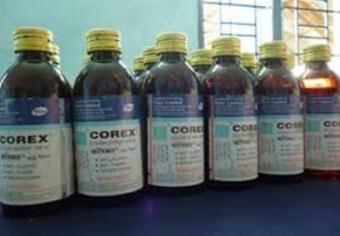In an announcement made via a Friday post on the official Oculus blog, Oculus and Frontier Developments said that 'Elite: Dangerous' sci-fi game...

A ban on codeine-based cough syrups of the Indian units of US-based drugmakers Pfizer and Abbott Laboratories has resulted in the shares of these companies falling by as much as 5% on Monday.
The ban was slapped by Indian authorities claiming codeine, a narcotic, posed a health risk. While Pfizer's India unit sells the product by the name Corex, Abbott does so by the brand name Phensedyl. Pfizer said it had already suspended the sale of Corex even as Abbott did not respond to a request for comment.
These syrups contain a combination of chlopheniramine maleate and codeine which, a government panel of experts said, had “no therapeutic justification.” The drugs were among 344 drug combinations banned by India over the weekend.
Indian authorities said the banned drugs had entered the market over the years following a green signal from regulators of individual states instead of a go-ahead from the central government, something that is legally binding.
Pfizer said in a statement that the brand Corex brought in sales of about 1.76 billion rupees ($26.29 million) in the third quarter ended December 2015. Phensedyl governs over one-third of the Indian cough syrup market and its sales make up for more than 3% of Abbott's $1 billion India revenue. Abbott India Ltd's shares fell nearly 3% while that of Pfizer Ltd declined by 5.2% in early Indian trade on Monday.
India had set up a committee in 2014 to review more than 6,000 combinations that had forayed into the market only on the basis of approval from state regulators. KL Sharma, a joint secretary at the health ministry, said the committee was tasked with classifying the drugs into rational, irrational, and those that need further studies. “Now based on responses (and) assessment of products, more than 300 drugs have been prohibited”, he said.
"Combination drugs are used worldwide to improve patients' compliance, as it is easier to get patients to take one drug rather than several. But inconsistent enforcement of drug laws in India has led to the proliferation of hundreds of such medicines entering the market based on approval from regulators of individual states, rather than the central government," according to a news report published by BusinessToday.
He did not name the medicines, but said an official notice announcing the ban would be issued "in a few days." The Drug Controller General of India was not immediately available to comment.
According to a report in YAHOO by Zeba Siddiqui, "A Reuters investigation revealed in December that a unit of Abbott in India was selling a combination of the antibiotics cefixime and azithromycin without approval from the central government. The combination is not approved for sale in major pharmaceutical markets, including the United States, United Kingdom, Germany, France and Japan."
Fixed-dose combination drugs, or FDCs, combine two or more drugs in a single pill. In India, many pharmaceutical companies have obtained a license from a state to make FDCs, like Abbott's Zimnic AZ, and sell them across the country without the consent of the central government.
In a report published by the Business-Standard, "US pharmaceutical giant Abbott Laboratories' India unit will comply with all legal requirements of a government order that bans more than 300 combination drugs in the country, a company spokesman said on Monday."
Abbott's Phensedyl cough syrup accounts for about a third of the Indian cough syrup market, and its sales are estimated to make up more than 3 percent of the company's $1 billion India revenue.










